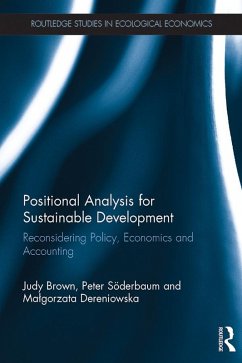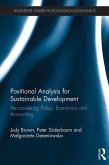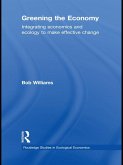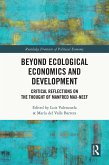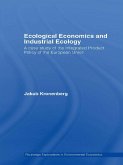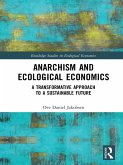Climate change, biodiversity loss, pollution of land and water, land-use changes, lack of equality and other problems at local, national and global levels represent a challenge for economics as a social science. Mainstream neoclassical economics may be able to contribute to a more sustainable society but it has also played a dominant role in a period where problems have been aggravated. A pluralist and democratic view of economics is therefore very much warranted. This book presents a multidimensional and ideologically more open view of economics: understanding economics in multidimensional terms is in accordance with the 17 sustainable development goals recognized by nations at the UN-level in 2015.Accordingly, approaches to decision making and accounting at the national- and business levels have to be reconsidered. Neoclassical Cost-Benefit Analysis (CBA) with focus on the monetary dimension and an assumed consensus about a specific market ideology to be applied is not compatible with democratic societies where citizen and actors in other roles normally differ with respect to ideological orientation. Environmental Impact Statements and Multi-Criteria methods are used to some extent to broaden approaches to decision-making. In this book, Positional Analysis is advocated as a multidimensional and ideologically open approach. Positional Analysis is based on a political economic conceptual framework (as part of ecological economics) that differs from neoclassical ideas of individuals, firms and markets. And since approaches to decision-making and to accounting are closely connected, a new theoretical perspective in economics similarly raises issues of how national and business accounting can be opened up to meet present demands among various actors in society. This perspective raises also numerous ethical questions at the science and policy interface that need to be properly addressed for sustainability decision making.
Dieser Download kann aus rechtlichen Gründen nur mit Rechnungsadresse in A, B, BG, CY, CZ, D, DK, EW, E, FIN, F, GR, HR, H, IRL, I, LT, L, LR, M, NL, PL, P, R, S, SLO, SK ausgeliefert werden.

